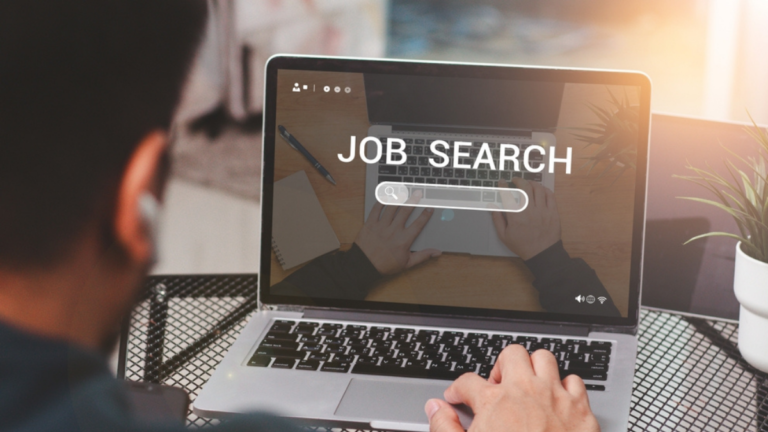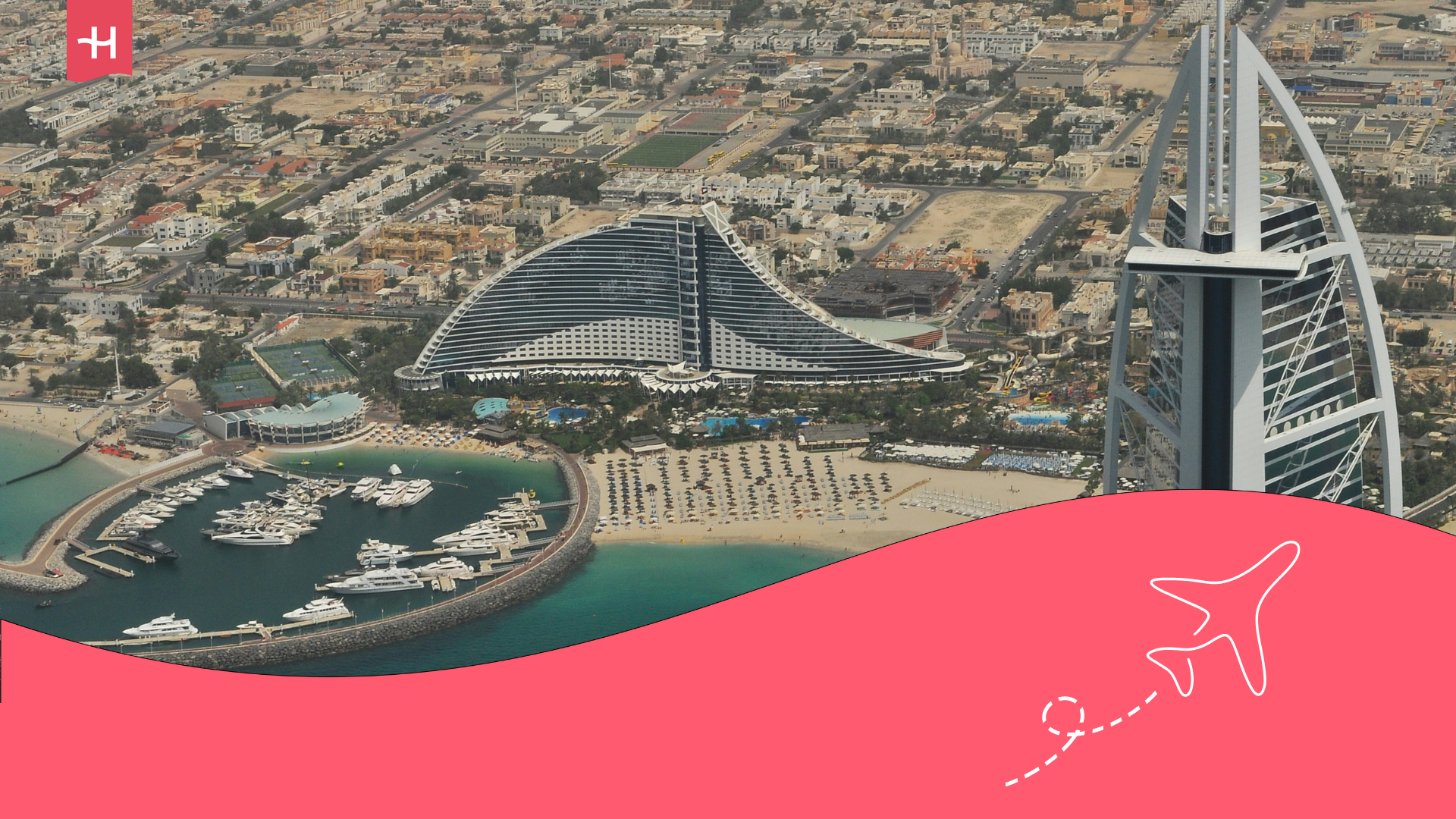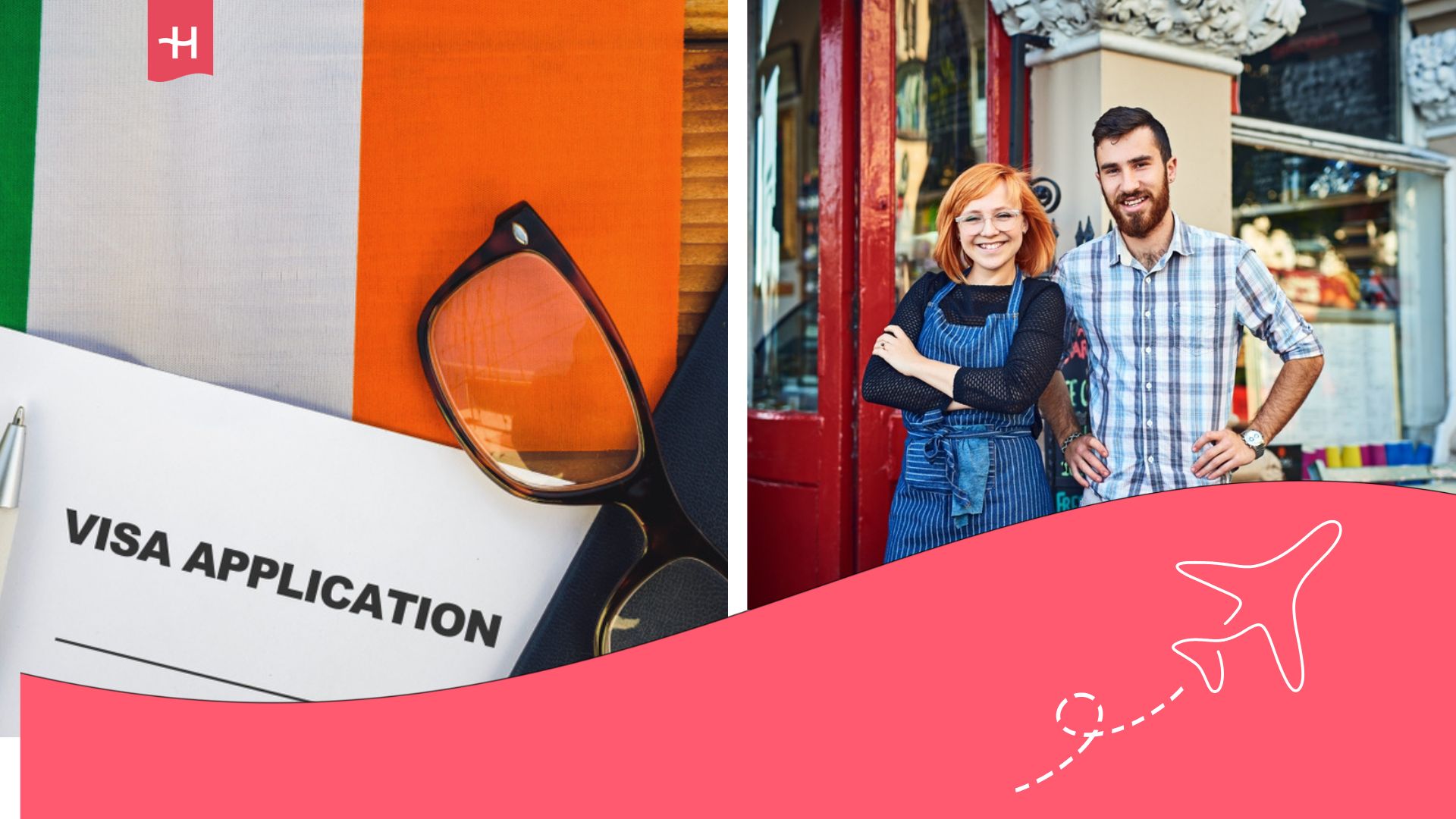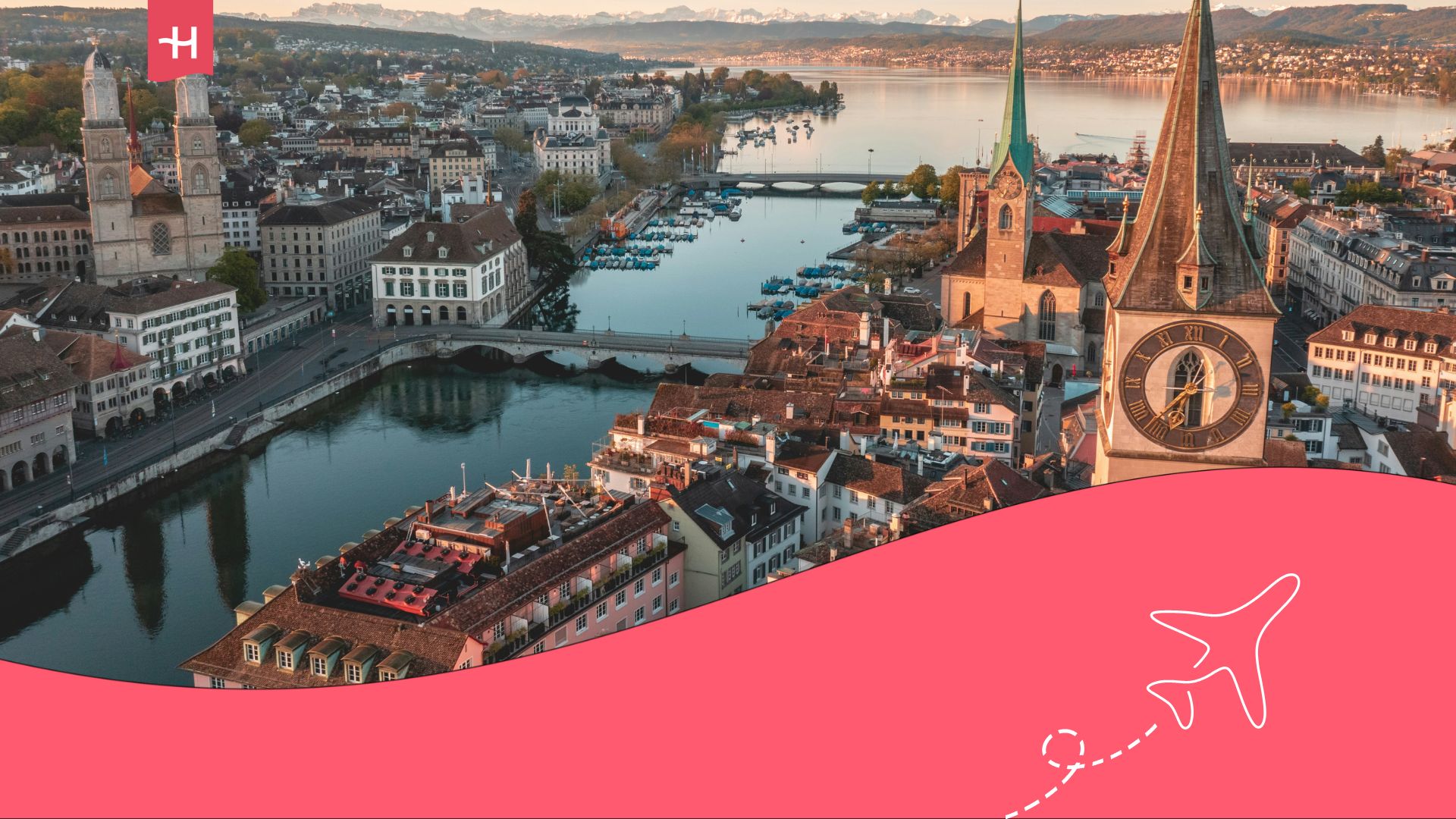How to work in Dublin: Opportunities and requirements
To work in Dublin, we have prepared a guide with all the information about the jobs available, where to find them, and their salaries.
Not sure what it’s like to work in Dublin? You’ve come to the right place. This guide will show you how to find a job, which roles are in demand, and what employers expect.
Dublin is a city that offers plenty of benefits for workers, which we’ll break down in this article. One highlight is the quality of life the city provides its residents. Stick around until the end, and you’ll also find out what salaries look like for various jobs and professions in Ireland’s capital.
Advantages of working in Dublin
One important factor to consider when looking for a job is what a city like Dublin can offer you professionally. Here, we’ll highlight the key benefits, helping you understand why this city is such a great place to work.
- Quality of life: The city offers various amenities such as safety, efficient transportation, road infrastructure, and a wide range of cultural activities.
- Competitive salaries: Jobs in Dublin tend to offer competitive salaries compared to other Irish cities and even other European cities.
- Business center: Ireland’s capital has grown into a major business hub, attracting startups as well as tech giants like Google, Meta, LinkedIn, and Amazon.
- Employment guarantees: Dublin has worker-friendly laws that offer a range of benefits, including paid vacation, sick leave, and maternity leave of up to 10 months, with some weeks paid.
Requirements for working in Dublin
There are some general requirements you need to meet to work in a city like Dublin. We’ll go over them so you can get everything ready and avoid any surprises.
- Work visa: You must apply for a work visa (type D), which is for long-term stays.
- Work permit: If you’re not an EU citizen, you’ll need a special work permit, which you can apply for through the Department of Enterprise, Trade and Employment.
- Valid passport: Your passport must be valid and have a minimum validity of one year.
- Passport photos: They must be recent, signed, and include the AVATS code sent to your email.
- Health insurance: You may be asked for this during the work permit application process and when you arrive at any airport in Ireland.
- Cover letter: It should include most of your personal details, where you will be staying in Dublin, and why you chose to work in Ireland.
- Translated resume: Your resume should be in English, in the Irish format, and contain concise information.
- Employment contract: If you already have a job contract, you’ll need to include it with your work permit application. If not, your employer must provide a letter outlining the terms and conditions of the job they’re offering you.
- Initial financial funds: You’ll need to show that you have enough funds to cover your basic expenses during your first few months in the country.
- Qualification tests: This test will assess your level of knowledge to practice the profession or trade for which you are being hired in Ireland.
Tips for starting work in Dublin
You now have an overview of the most important requirements for working in Dublin. On top of that, we’ve put together some tips that we think will help you get off to a smooth start in Ireland’s capital.
- Visa and work permit: Apply for the visa and work permit that best fit your plans well in advance, so you have time to handle any last-minute requests or issues that may come up.
- Find out about the city: Learn about Dublin’s culture and lifestyle, and find out which expenses are likely to be the highest, such as housing, taxes, or food. It’s also important to understand what’s acceptable and what’s not, since you’ll be navigating new ways of interacting and living.
- Find out how to access the healthcare system in Dublin: Understanding how healthcare works in Dublin is crucial. Even with private insurance, your job will likely require you to join the Irish public health system, so it’s best to get familiar with it before you arrive.
- Learn how to get around the city where you will be living: Check out the main routes, what transportation options are available to you, and even the costs.
- Internet: Don’t rely on public Wi-Fi to stay in touch with friends and family once you’re in Dublin. It’s better to get a monthly plan from Holafly, which lets you connect multiple devices and offers coverage in up to 170 countries. You can also use an eSIM for Ireland to get unlimited data for just the days you need.
Types of jobs in Dublin for foreigners
Dublin offers a variety of jobs for foreigners. Let’s take a look at some of the sectors where you can work and the options that tend to be the most accessible for international workers.
- Hospitality: This sector is one of the most popular among foreign workers, since Dublin attracts a steady flow of tourists and business travelers.
- Construction: With the city constantly expanding and buildings of all kinds being renovated and maintained, construction work is a sector that’s relatively accessible for those looking for jobs in Dublin.
- Technology: As we mentioned earlier, Dublin is a major business hub home to the offices of many large tech companies, which are always looking for skilled professionals in the field.
- Healthcare: The healthcare sector consistently needs workers across various roles, including doctors, nurses, and reception staff.
- Finance: This type of work is closely connected to fields like technology, which often need skilled professionals to manage accounts, organize finances, and advise on business spending.
- Various trades: All sectors require cleaning and maintenance workers, making these some of the most sought-after jobs in Dublin.

The jobs in highest demand in Dublin for foreigners
Among the jobs we’ve listed above, you’ll also find those with the highest demand in Dublin. Many of these roles are listed on the Critical Skills Employment List, which shows a shortage of local workers and increases your chances of getting a work permit.
See if any of these match your skills and experience, so you can get an idea of which positions to apply for when sending out your CV. Later, we’ll explain the best places to look for work in Dublin.
- In technology: Web developers, big data experts, and cloud architects are needed.
- In hospitality: Receptionists, cleaners, maintenance staff, and cooks are needed.
- In construction: Specialists in renewable energy, plumbers, and bricklayers are needed.
- In healthcare: General practitioners, specialists, social workers, and nurses are needed.
- In finance: Auditors, accountants, and risk analysts are in demand.
- Other types of jobs: Drivers, nannies, and caregivers for the elderly.
Salaries and cost of living in Dublin
Salaries in Dublin vary depending on your job, hours worked, and your experience and education. However, entry-level positions typically pay between $32,700 and $38,100 per year.
Now let’s take a look at the estimated salaries for some professions and trades in Dublin. Keep in mind that factors can make these figures higher or lower, so make sure your contract specifies a fair, legal wage.
- Web developers: Can earn approximately $45,000 per year.
- Nurses: Could earn around $38,100 per year.
- Teachers: Typically earn between $32,700 and $38,100 per year.
- Various trades: Can earn from $23,000.
- Construction (bricklayers): Average salary ranges from $32,700 to $52,000 per year.
Cost of living in Dublin
The cost of living in Dublin depends on your lifestyle, spending habits, transportation choices, leisure activities, and where you live. That said, a single person can expect to spend around $2,300 per month.
This cost of living is balanced for salaries that are equal to or greater than $32,700 per year, or the equivalent of $2,700 per month.
Important: If you are a frequent traveler and want to stay connected without worrying about expensive roaming or looking for a new SIM at every destination, Holafly’s subscription plans are for you. With a single eSIM, enjoy internet in more than 170 countries for a fixed price and no surprises on your bill. Travel without limits and connect easily and securely! 🚀🌍

Where can you find job opportunities in Dublin?
Finding a job in Dublin takes time and effort, especially as a foreigner since you need to meet all the requirements we’ve outlined in this guide. That’s why we recommend searching through apps, websites, and official company channels.
This way, you can steer clear of scams, illegal work, or wasting time and money on unnecessary procedures. Here’s a list of the most popular job apps in Ireland, including both public platforms and trusted private tools.
- JobsIreland.ie: This website belongs to the Irish government and is managed by the Department of Social Protection, making it a reliable source.
- IrishJobs.ie: It’s a well-known job portal in Ireland, where you can find thousands of openings across a variety of technical and professional fields.
- EURES: This is a website recognized throughout the EU for finding work in different parts of the region, including Dublin.
- Indeed.ie: It’s an app you can download on your phone that lets you apply for a wide range of jobs, from trades to professional roles.
- Jobs.ie: This website focuses on jobs in tourism, hospitality, cooking, and bartending. It offers plenty of opportunities for people just starting out in Dublin.

Frequently asked questions about working in Dublin
Yes, this is a requirement, especially for citizens who are not members of the European Union.
The processing time for a work visa for Ireland can vary depending on the number of applications. Generally, it takes around 6 to 8 weeks.
Yes, you can, but you must apply for a new work permit so that the authorities are aware of your new employment situation.
A work visa for Ireland typically lasts for 2 years, though it can vary depending on the authorities’ assessment. Authorities can extend it for up to 5 years in some cases.





 Language
Language 


















 No results found
No results found








